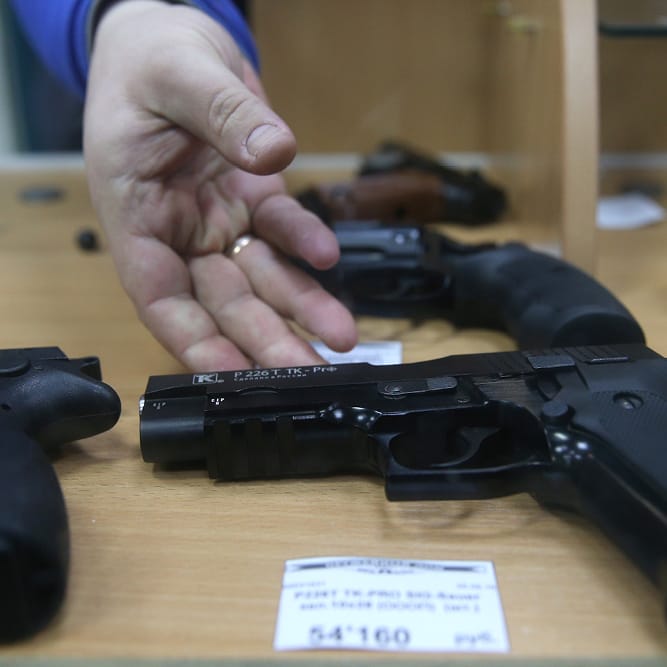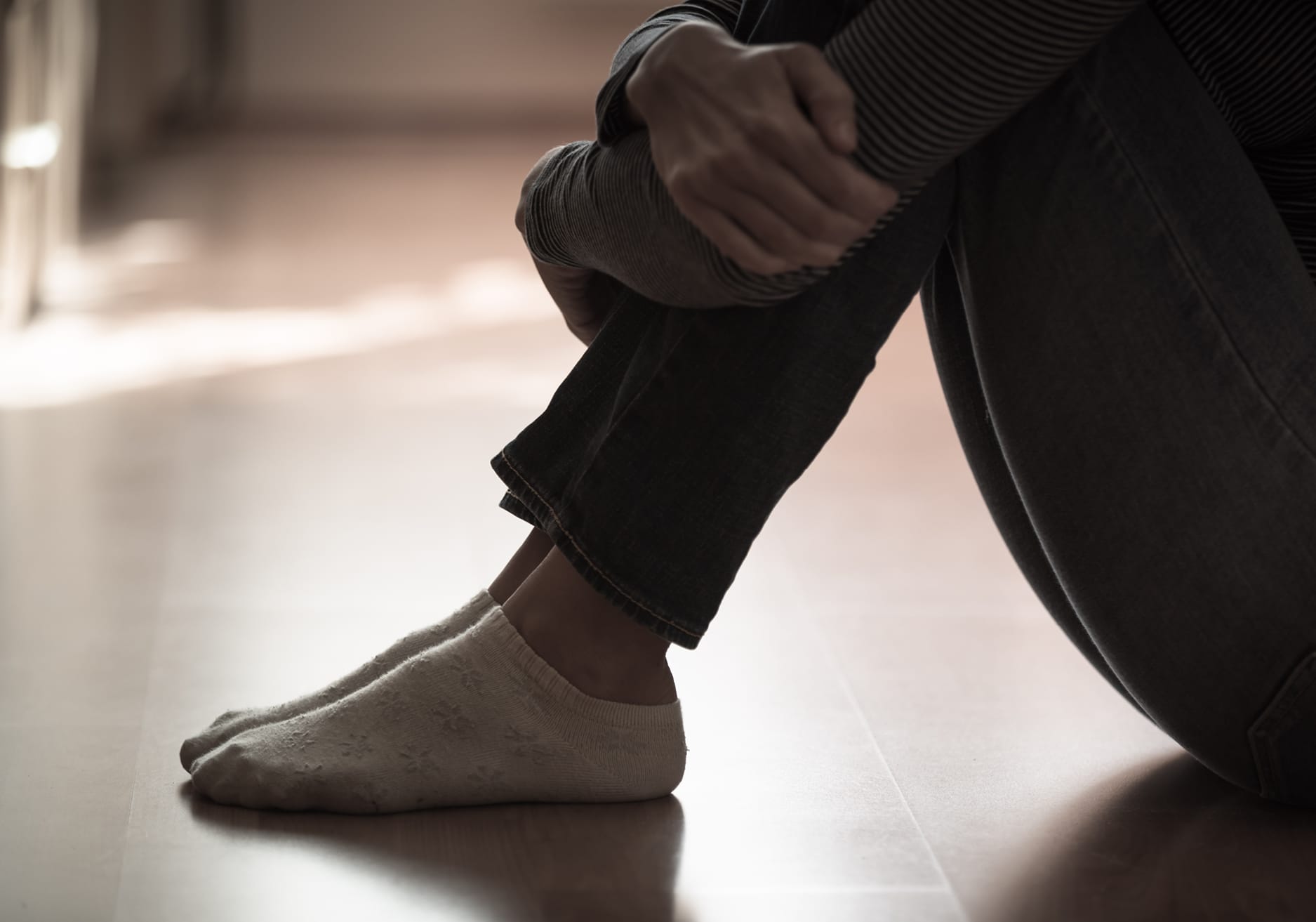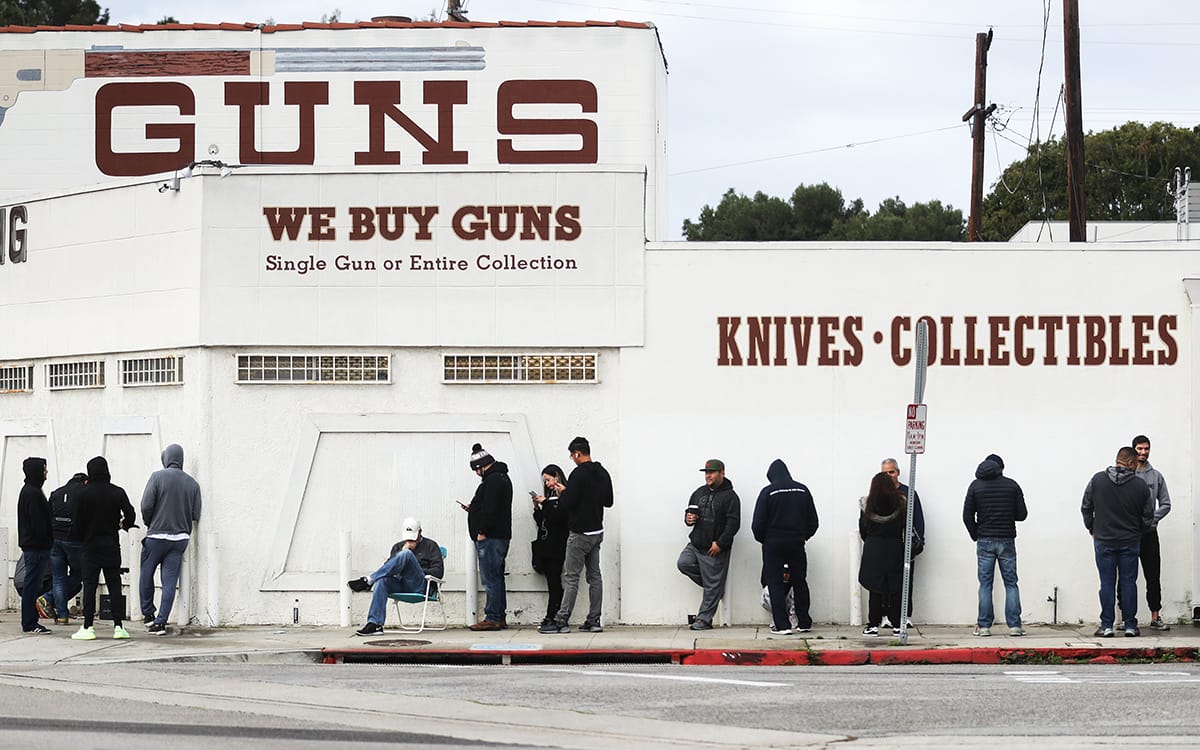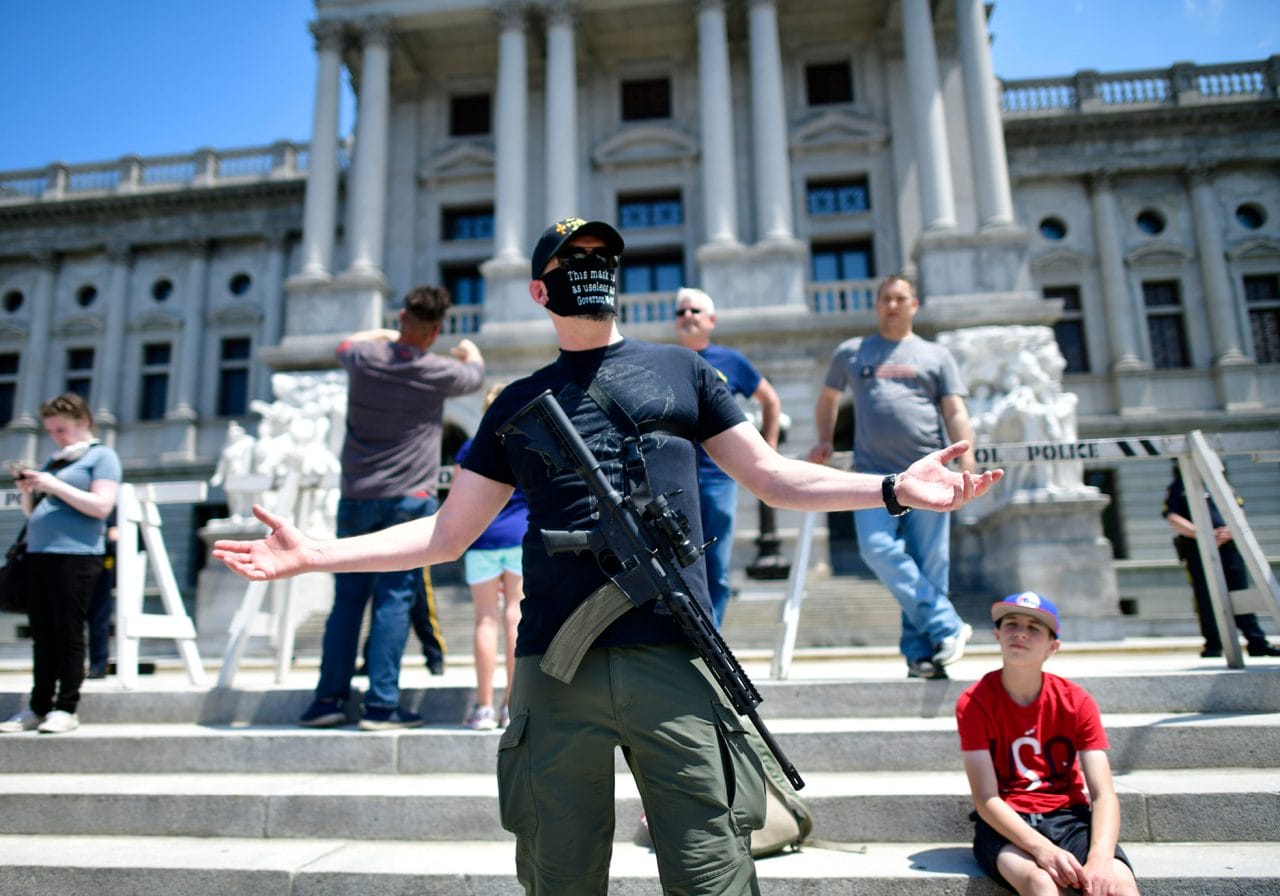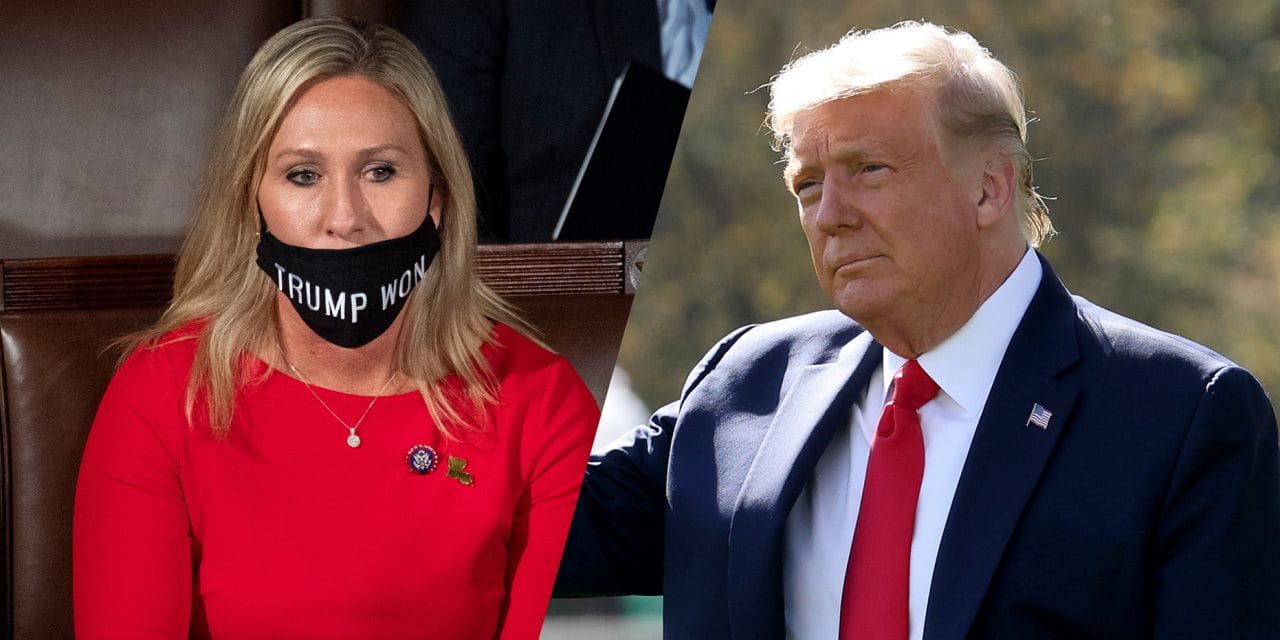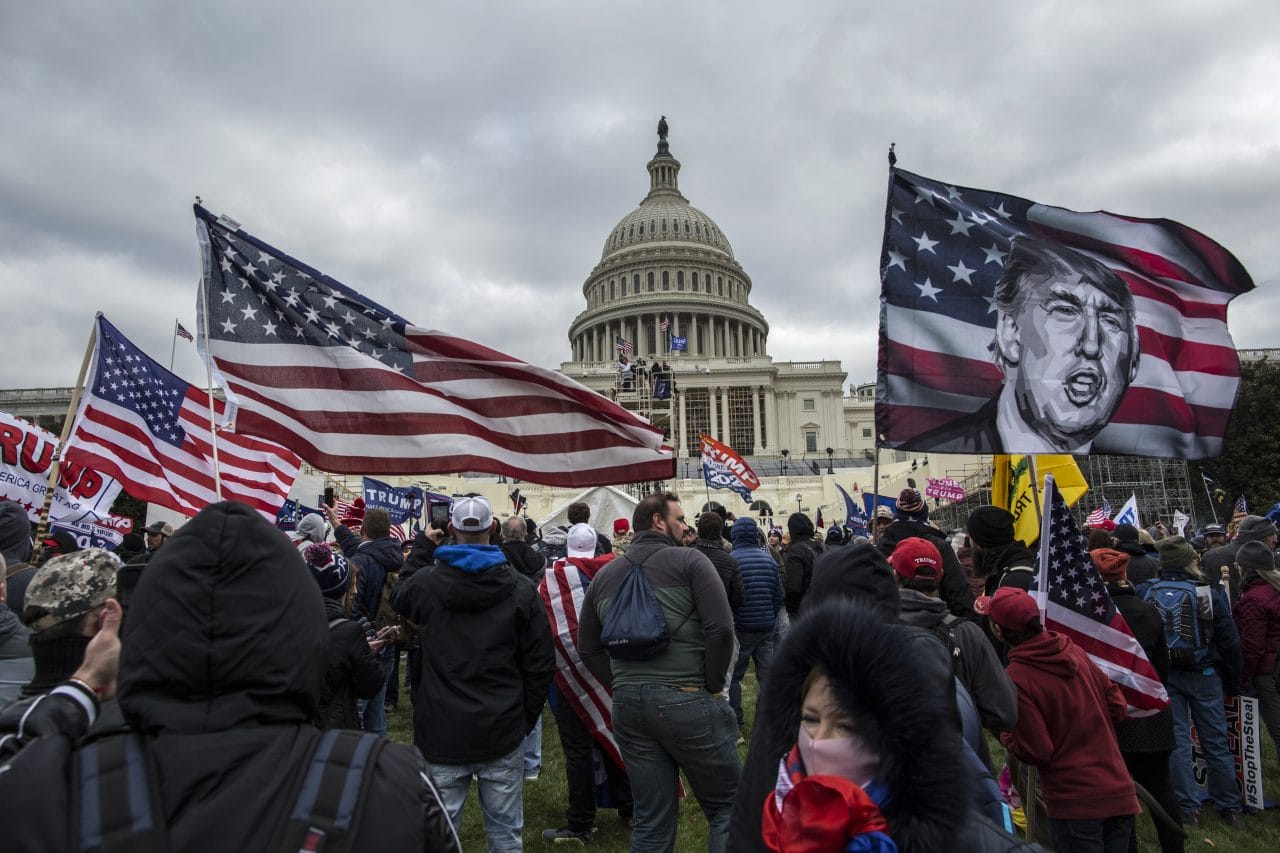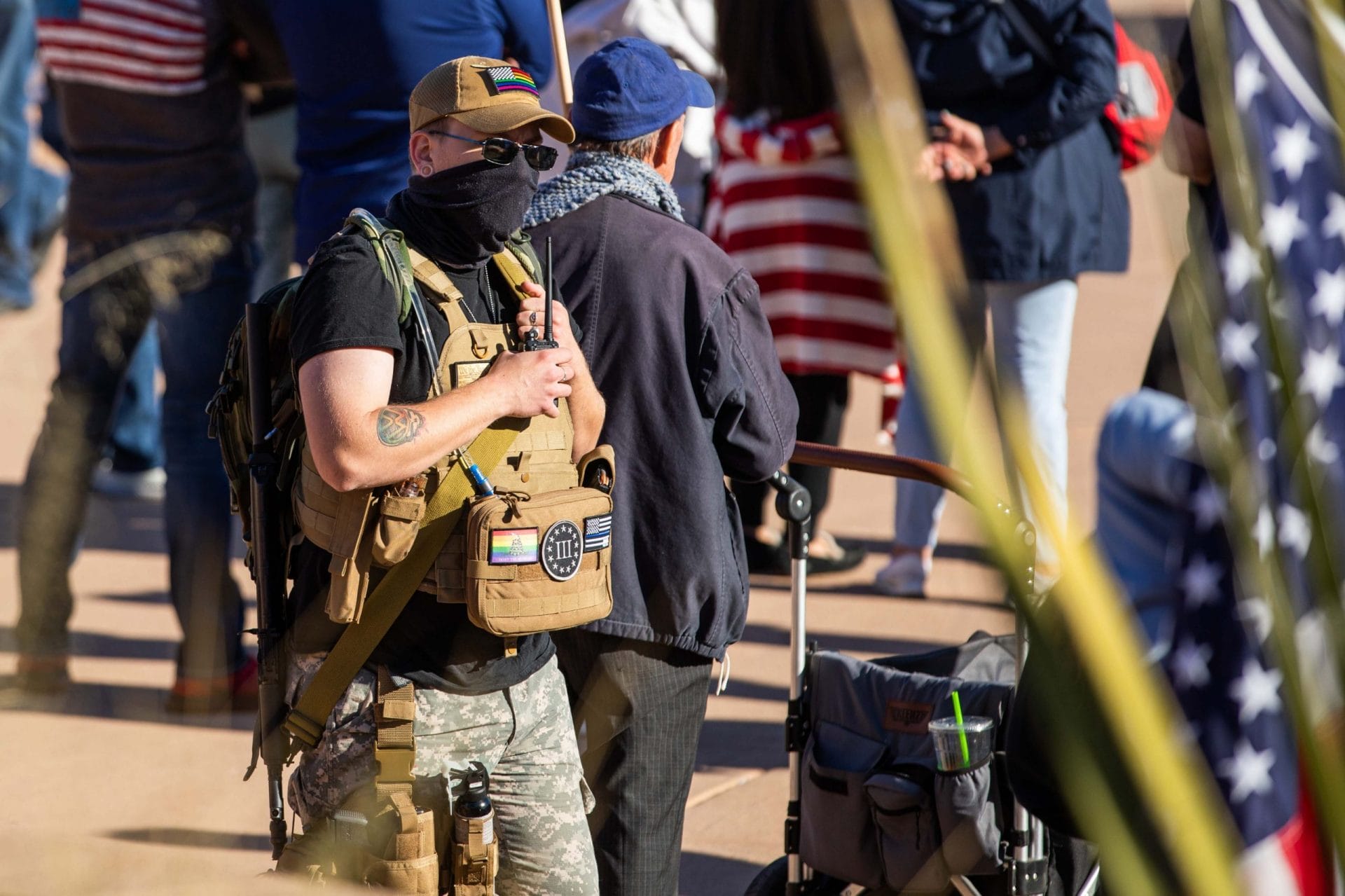
How COVID-19, Racial Inequity, and the Capitol Insurrection Make the Case for Universal Background Checks
As America approaches the one-year anniversary of the first coronavirus lockdowns, many communities continue to suffer.
Communities are suffering not only from COVID-19 and its financial aftermath, but also from gun violence, which has surged in the past year. The pandemic, renewed calls for racial justice, and the attack on the Capitol have made clear to many Americans that we need real reform when it comes to guns. Luckily, with a new administration in the White House and new leadership in the Senate, we have an opportunity for lasting change at the federal level.
Efforts to strengthen gun laws have long focused on closing a loophole that allows unlicensed individuals to sell guns without conducting background checks. Even though the House of Representatives passed HR 8, the Bipartisan Background Checks Act, during the last congressional session, our nation still lacks this foundational gun safety policy—which over 90 percent of Americans support. As described below, our country’s need for universal background checks is greater now than ever before.
Closing the Loophole
Even before the coronavirus, gun violence was a serious crisis in the United States, with about 38,000 people dying from firearms in 2019. This crisis has a disproportionate impact on communities of color, particularly Black communities. Experts attribute this ongoing tragedy to our weak system of national gun laws, which is riddled with loopholes. The biggest of these loopholes concerns the background checks requirement.
Source
Matthew Miller, Lisa Hepburn & Deborah Azrael, “Firearm Acquisition Without Background Checks,” Annals of Internal Medicine 166, no. 4 (2017): 233–239.
While federally licensed gun dealers are required to conduct these checks, unlicensed sellers—including people who sell guns online, at gun shows, or anywhere else without a federal dealer’s license—can sell guns without having to conduct any background check whatsoever. A 2017 study estimated that 22% of US gun owners acquired their most recent firearm without a background check.
After years of intense lobbying, in 2019 the House of Representatives passed HR 8, a bill that would require a background check on every gun sale or transfer, with carefully defined exceptions for gifts to family members, hunting, target shooting, and self-defense. HR 8 would require unlicensed gun sellers to abide by the same National Instant Criminal Background Checks System (NICS) that licensed dealers use.
Due to resistance from then-Senate Majority Leader Mitch McConnell and President Trump, that bill languished in the Senate for almost two years. In the aftermath of the two horrific shootings in Dayton, Ohio, and El Paso, Texas, in 2019, Democrats went so far as to seek an emergency session, asking McConnell to bring a vote on HR 8, but he declined. President Trump signaled some support, but insisted that the effort not be rushed. He quickly folded when the NRA indicated it would not be supportive of the bill.
The results of this failure were tragic but predictable. On August 31, 2019, a gunman opened fire on multiple locations in Odessa and Midland, Texas, killing seven and injuring at least 25. The shooter had previously failed a background check when trying to purchase a gun after being diagnosed with a mental illness by a clinician. Yet he was still able to bypass the background check system altogether and obtain an AR-style weapon from an unlicensed seller. In other words, the shooter, like many before and after him, obtained a gun through the very loophole HR 8 would have addressed.
MEDIA REQUESTS
Our experts can speak to the full spectrum of gun violence prevention issues. Have a question? Email us at media@giffords.org.
Contact
COVID-19 & Gun Violence
Tragically, the coronavirus pandemic has exacerbated public health crises in which guns often play a lethal role, including suicides, domestic violence, and community violence. The lack of a background check requirement as gun sales are surging puts Americans at even greater risk.
During the COVID-19 pandemic, suicides have increased drastically in communities from Philadelphia to Chicago. Guns often make a suicide attempt that a person might otherwise survive fatal, which is why efforts to reduce gun access among people suffering a mental health crisis are so important. These efforts depend on a strong background check requirement to prevent a person identified as at high risk of suicide from procuring a gun.
Background checks play a similar role in the fight against domestic violence, which has also increased during the pandemic. The social isolation and financial upheaval of the pandemic, combined with the forced proximity to abusers and difficulty accessing domestic violence resources, have had dire consequences for abuse victims. Many localities have reported increases in calls to hotlines and police in response to incidents of abuse. Often the best tool available to an abuse victim is a restraining order, which can prohibit the abuser from owning or purchasing guns. Restraining orders are accessible through the background check system, but if guns are available without background checks, abusers subject to restraining orders can easily get their hands on a gun.
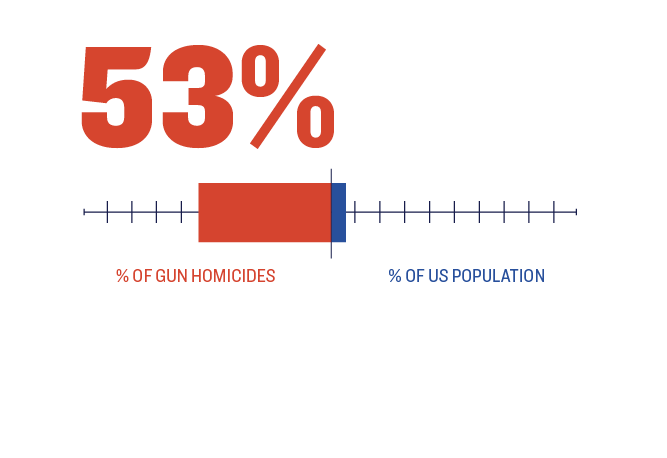
Over half of gun homicide victims are Black men
Source
Centers for Disease Control and Prevention, Wide-ranging Online Data for Epidemiologic Research (WONDER), “Underlying Cause of Death, 2018-2022, Single Race,” last accessed May 28, 2024, https://wonder.cdc.gov/.
Many metropolitan areas experienced spikes in community gun violence in 2020, with over a dozen cities reporting increases in homicides of 50% or more. Long before the onset of the pandemic, many of the nation’s most disadvantaged, low-income neighborhoods faced a daily toll of gun violence that too often went unrecognized. This violence harms communities of color disproportionately, with Black men making up 52% of all gun homicide victims but less than 7% of the population. Trafficking through unlicensed gun sellers is one of the main sources of firearms into communities of color. Stopping the flow guns through these sellers is of paramount concern, and a universal background check requirement would be a huge step in this direction.
COVID-19 has also resulted in an unprecedented increase in gun sales, with many people responding to the fear and uncertainty of 2020 by purchasing guns. More background checks were conducted by September 1, 2020, than in the entirety of 2019. Overall, last year’s number marked an increase of about 87% over the previous year, with nine out of the ten highest weeks of background checks ever occurring in 2020. Without a comprehensive background check requirement, there is little that can be done to prevent these newly purchased guns from falling into the hands of people prohibited from possessing them.
The Fight for Racial Justice
In 2020, the nation also heard renewed calls for racial justice. Advocates across the country responded to brutal incidents of police violence against Black Americans by demanding dramatic reforms to our criminal justice system. Background checks play a key role in such reforms.
Currently, the main method that federal law enforcement uses to fight gun violence is to prosecute individuals found to be in illegal possession of guns. This approach has a disproportionately negative effect on communities of color, leading to the mass incarceration of Black and Brown men, separation of families, and destruction of whole communities. In 2017, the United States Sentencing Commission reported that over half of the people charged with being a felon-in-possession were Black. Reducing gun violence should not, and does not, require relying on mass incarceration.
Source
Daniel W. Webster, Jon S. Vernick, and Maria T. Bulzacchelli, “Effects of State–level Firearm Seller Accountability Policies on Firearm Trafficking,” Journal of Urban Health 86, no. 4 (2009): 525–537; Daniel W. Webster, Jon S. Vernick, Emma E. McGinty, and Ted Alcorn, “Preventing the Diversion of Guns to Criminals Through Effective Firearm Sales Laws,” in Reducing Gun Violence in America: Informing Policy with Evidence and Analysis (Baltimore: The Johns Hopkins University Press, 2013), 109–121.
The background check system is designed to prevent the flow of guns into the hands of people who could end up being prosecuted for illegal possession. A 2016 survey found that of the population of prisoners who obtained their firearms from a retail setting, less than 12% obtained them from a licensed dealer. Requiring background checks for every firearm purchase will help reduce the number of firearms illegally flowing into communities of color by preventing people who are not legally eligible to possess guns from obtaining them in the first place. This change would reduce prosecutions for illegal possession, making our communities not only safer, but also more just.
Capitol Insurrection
In the months leading up to the 2020 election, extremist circles online were awash in violent rhetoric threatening armed insurrection if Trump lost. According to our analysis of online conversations, extremists called for violent attacks on opponents and mentioned guns 17 million times in posts that included explicitly threatening language, images of guns, memes, and jokes about violence. These threats escalated into action several times in 2020, with armed white supremacists storming state capitols to intimidate lawmakers and Kyle Rittenhouse shooting and killing an unarmed man at a protest over police violence in Kenosha, Wisconsin.
On January 6, 2021, the nation watched in horror as the hundreds of rioters, many of whom were armed and dressed for battle, stormed the Capitol building. As demonstrated on that day, domestic terrorists and white supremacists are especially frightening when they are armed. Five people lost their lives on January 6th, and police seized an alarming number of guns from the insurrectionists in the wake of the riot. One man who arrived a day after the attack came with an assault rifle and hundreds of rounds of armor-piercing ammunition.
“I’m a convicted felon but I can get my hands on almost any weapon I have the money to buy.”
The terrifying truth is that violent extremists involved in insurrectionist groups often accumulate arsenals of guns by taking advantage of loopholes in our laws, including the background checks loophole. These arsenals pose a serious threat to public safety and our democracy. “I knew they had guns—we had been seizing guns all day,” said one Capitol Police officer of the rioters. “And the only reason I could think of that they weren’t shooting us was they were waiting for us to shoot first. And if it became a firefight between a couple hundred officers and a couple thousand demonstrators, we would have lost.”
The presence of guns at the Capitol riot shows that relying on state legislatures to enact their own background check laws is insufficient. While 22 states and the District of Columbia require background checks on all gun sales, many individuals at the Capitol riot illegally brought in guns from states that do not have a universal background check requirement. Closing this loophole at the federal level will prevent people prohibited from possessing guns from evading background check requirements simply by crossing state lines.
One man who was arrested for illegal entry into the Capitol had previously posted on Facebook: “I’m a convicted felon but I can get my hands on almost any weapon I have the money to buy, and without the cops and legal weapons confiscated. What do you think would happen if people like me rose up and wanted to really take what we wanted and do what we really wanted?”
Law enforcement has since arrested dozens of the individuals involved in the insurrection, many of whom may be convicted of crimes. Some of these convictions will likely be felonies, meaning that the rioters would be prohibited from possessing guns. However, these insurrections may still be able to obtain guns through unlicensed sales—unless we close the background checks loophole. While background checks won’t prevent every act of gun violence or events like the Capitol insurrection, they are a necessary foundation for doing so.
Conclusion
The political, social, and economic upheaval of the past year, combined with the surge in gun sales and increase in gun violence, means that it’s now more important than ever for policymakers to address the problem of guns in the hands of people who want to do harm. Without action, the problem is only likely to get worse, with three of the five weeks with the highest number of gun sales ever occurring since the insurrection. An overwhelming number of Americans agree that guns should not be sold without a background check. It’s long past time for Congress and the White House to make this commonsense policy the law of the land.
